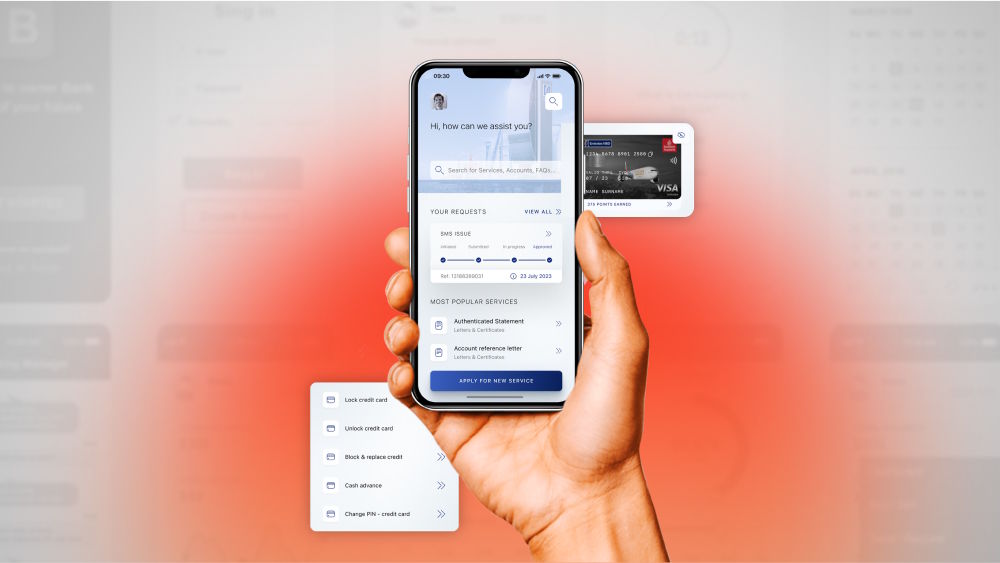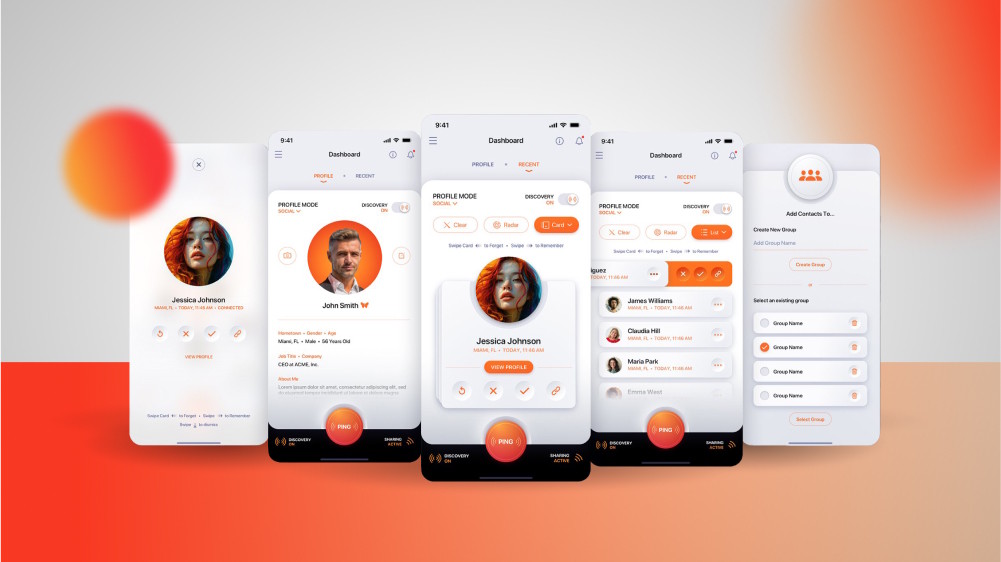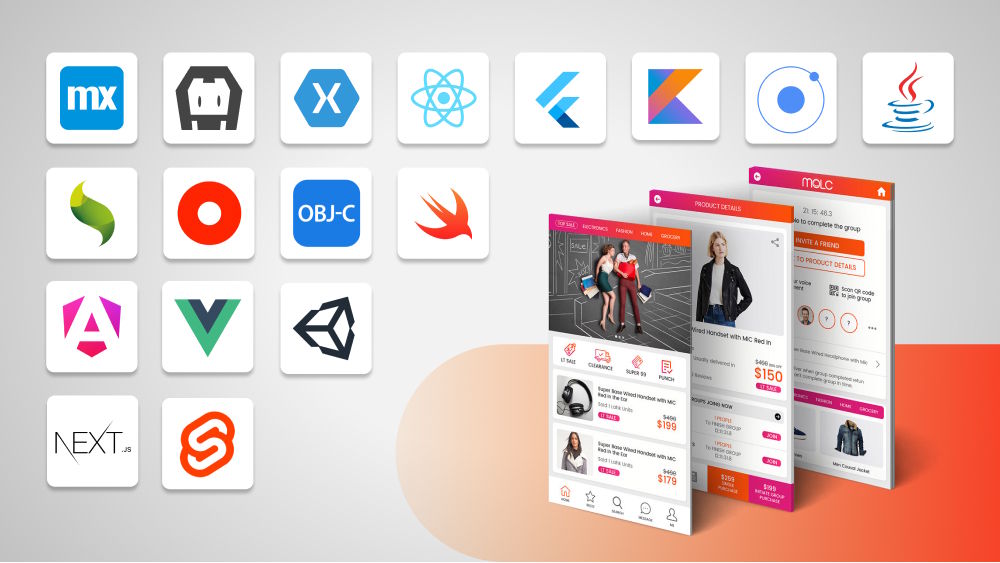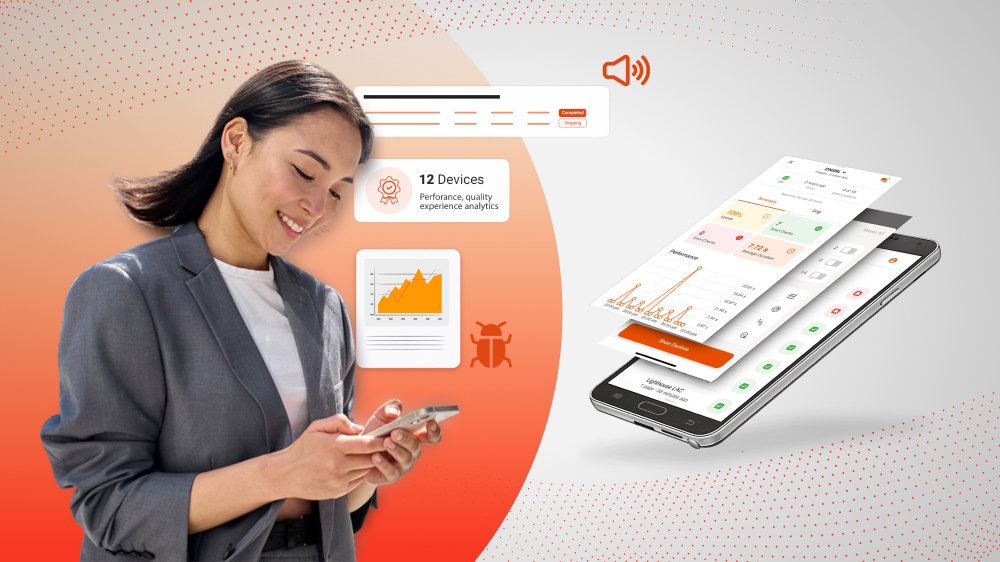
A Reference Guide to Enterprise Mobile Application Development
This guide provides you with foundational insights into enterprise mobile app development, helping you understand all the fundamentals before you start a project.
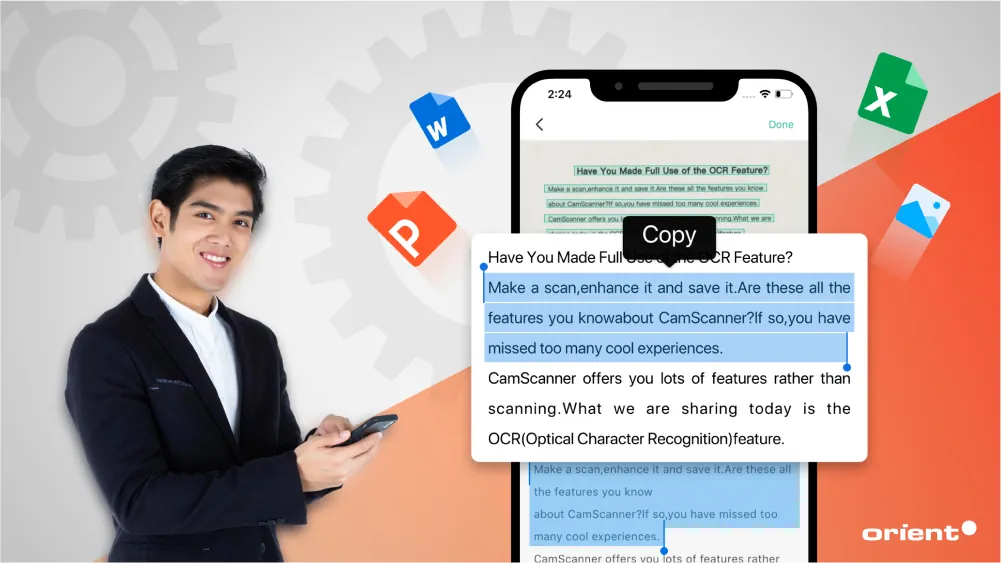
Content Map
More chaptersWe are living in the “mobile-first” world where almost every aspect of daily life, from social contact and communication to shopping and business operations, is accessible via smartphones and portable devices. As reported by Statista, the total number of active mobile devices worldwide reached 15 billion in 2021 and is expected to rise sharply to approximately 18 billion by 2025.
Mobile technology has already shifted from a good-to-have to a must for any organization that strives to thrive in today’s business realm. It even plays a bigger role in the entrepreneur picture when mobile applications are used not only for customer or user engagement but also for internal operation management. In a survey conducted by Harvard Business Review of 638 executives, 89% of respondents agree on the importance and the availability of employee-facing software (including apps and other digital tools) to their employees, especially in this era of digital transformation.

Whether you are a business owner seeking to build a large-scale mobile platform for your organizational operations or create and sell enterprise-grade mobile solutions, this guide provides foundational insights.
Key Takeaways:
- An enterprise mobile application is a mobile solution built to meet an organization’s internal needs. Such mobile apps can be single-purpose or all-in-one platforms that support multiple functions within a centralized system.
- There are different technical types of enterprise applications: Native apps, web-based apps, hybrid apps, and cross-platform apps.
- Enterprise mobile apps are structured into three tiers: Employee level, department level, and management level. Each serves the unique scope and needs of a specific organization.
- Business owners can consider purchasing off-the-shelf solutions, building their own custom mobile apps, or outsourcing their needs to third-party service companies.
What Is an Enterprise-Grade Mobile Application?
Alternative terms for this include enterprise software, business management apps, internal apps, enterprise mobile platforms, etc. These are just some prime examples that business owners can easily relate to.
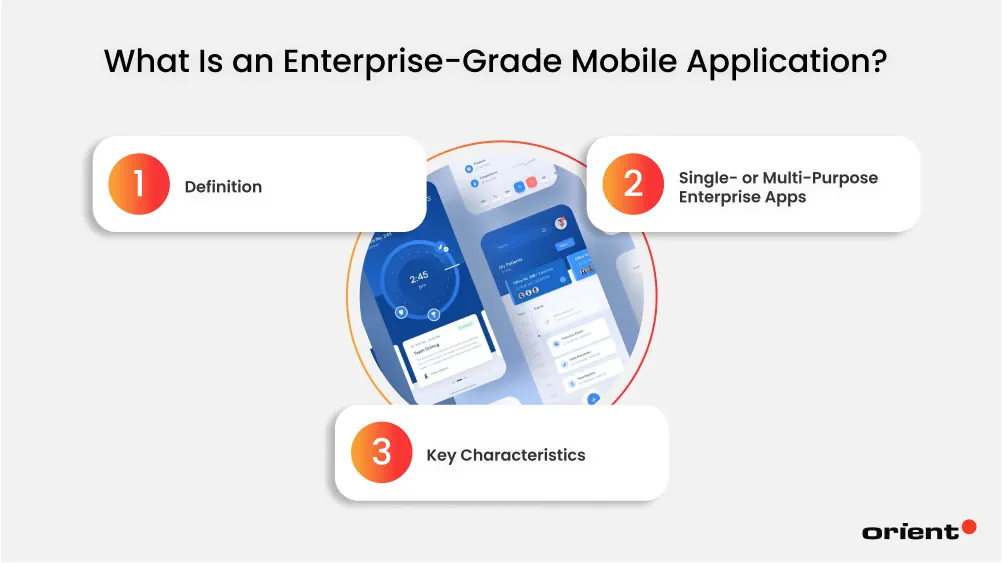
Definition
Without jargon, an enterprise mobile application is a mobile app or platform specifically designed for the business needs of an individual organization. It is often applied internally and used by boards of directors, employees, managers, investors, and other internal stakeholders. Enterprise apps are purposefully built to streamline business processes, facilitate communication and collaboration across departments, boost employee productivity, optimize resource allocation, safeguard company data, and so forth.
Single- or Multi-Purpose Enterprise Apps
Oftentimes, an enterprise solution can be labeled and categorized by what it is designed to handle. It can be customer engagement, customer relationship management, inventory management, data management, or something else. The features and functionalities are decided and tailored to fit specific workflows, helping an organization enhance productivity and address existing bottlenecks or potential ones within internal operations.
In enterprise mobile application development, a product can go either path:
- Modular One: Known as dedicated or single-feature mobile solutions. Such apps are built around one specific function or user group. For example, an HR platform for onboarding, pay slips, or leave requests.
- All-in-One: This refers to a centralized app that offers multiple business functions in one interface. For example, customer relationship management (CRM) apps, HR management apps, and enterprise resource planning (ERP) apps.
Key Characteristics
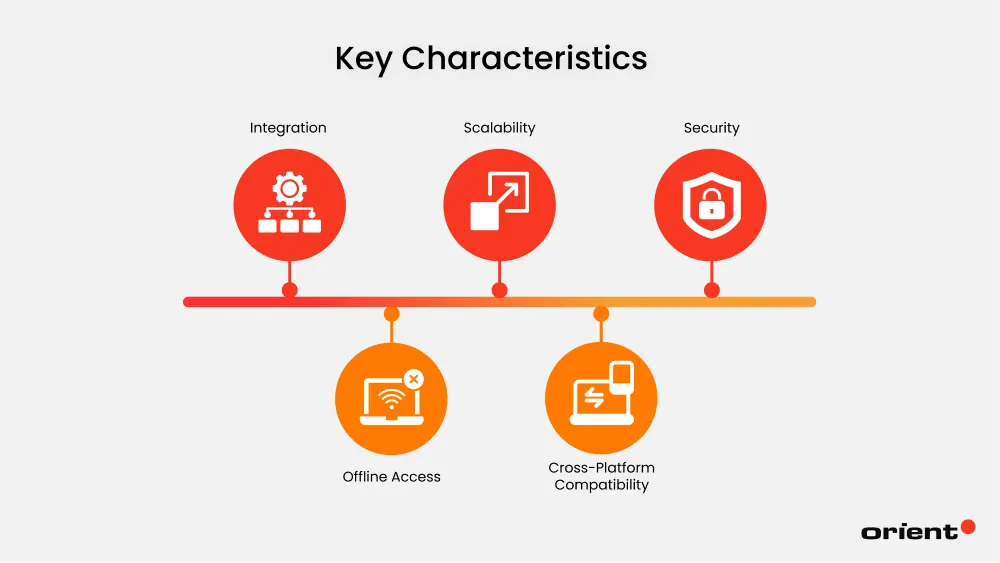
What sets enterprise applications apart from regular ones? The following core characteristics:
- Integration: Seamless connectivity with legacy systems via APIs enables bi-directional data flow between mobile endpoints and centralized databases.
- Scalability: Support large volumes of concurrent users and maintain a consistent user experience. These enterprise-grade platforms are built to scale with the business growth.
- Security: Include access control (E.g., mutli-factor authentication, single sign-on, data encryption, etc.), privileged management functions, and other security measures.
- Offline Access: Not all but many enterprise mobile apps are designed to support data synchronization and offline functionality, allowing for work continuity.
- Cross-Platform Compatibility: Employee-facing platforms are made available on iOS and Android devices, and desktops, and optimized for consistent UX.
Different Technical Types of Enterprise Mobile Applications
When building software for mobile devices, the choice of technical app architecture matters significantly. An enterprise mobile application typically falls into one of the following categories: Native, hybrid, web-based, responsive, or cross-platform.
Business owners should rely on their business goals, performance needs, user expectations, security, budget, technical constraints, and long-term scalability to make their decisions. These are key factors to help determine the most effective way to develop and deploy a product. It is also important to note that each type of mobile app requires different development tools, frameworks, and strategies.
Native Applications
A native application is designed to run on specific mobile operating systems (iOS and Android) using platform-specific languages and software development kits (SDKs). For example, Swift/Objective-C for iOS and Kotlin/Java for Android. Designed for a specific platform, native apps fully access the device’s hardware and system-level features, such as GPS, camera, sensors, and push notifications. They are preferred for high performance, rich user interfaces, and offline functionality.
Web-Based Applications
These are browser-based mobile solutions that do not need to be explicitly installed from the app store. Instead, they are accessed through browsers (Such as Google Chrome or Safari) as regular websites that are optimized for mobile devices. Web-based or web-hosted apps are easy to build, deploy, and maintain as they are built with familiar technologies, such as HTML, CSS, and JavaScript.
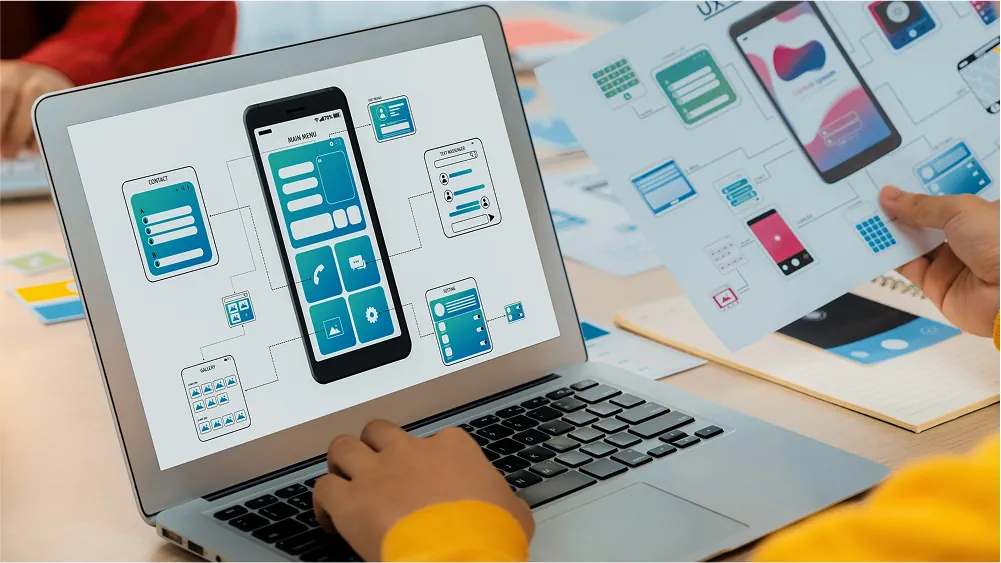
However, web-based apps require a constant internet connection, meaning that users cannot access device features when working offline. They also lack deep native device integration. Since web-based applications are great for information delivery, business owners often consider building them for operational purposes, such as company news portals.
Hybrid Applications
This type of application combines selected aspects of both native and web apps. Developers build hybrid applications using web technologies and then wrap them in a native container using frameworks like Apache Cordova, Ionic, or Capacitor. This enables hybrid apps to run on various platforms (E.g., iOS, Android, etc.) with one single codebase.
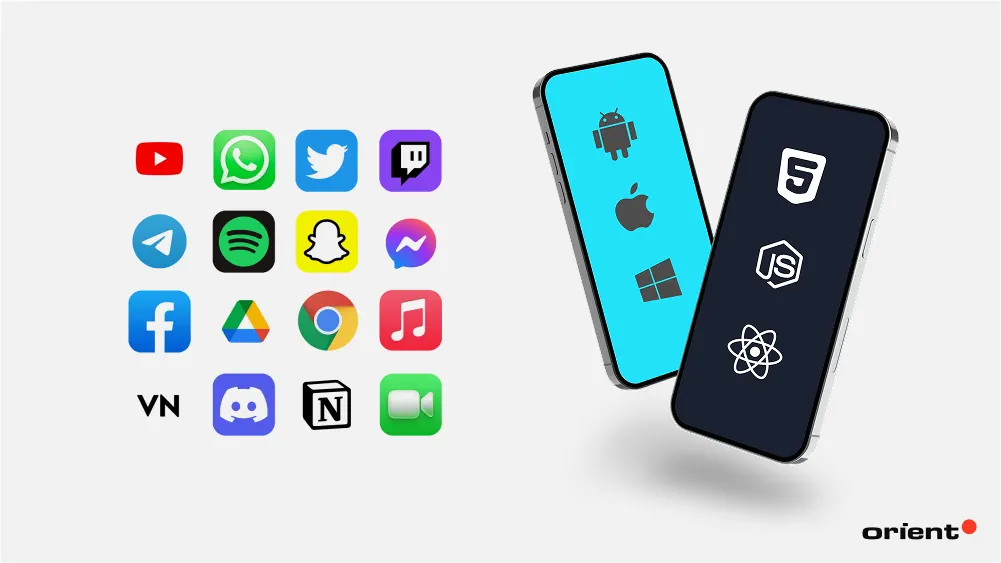
Hybrid apps are capable of accessing a device’s native features, such as camera, GPS, etc., through APIs provided by hybrid frameworks. While they may not match native apps in performance or UI responsiveness, they are faster to develop and easier to maintain. For enterprise use cases, hybrid mobile apps strike a balance between speed, functionality, and cost-efficiency. They are ideal for content delivery, such as internal employee portals, surveys, or forms.
Cross-Platform Applications
A cross-platform mobile application is built with a write-once-run-anywhere (WORA) approach using frameworks like Flutter, React Native, or Xamarin. It uses a shared codebase that works on multiple operating systems and platforms. For example, iOS, Android, or Windows. The development team does not need to write separate code for each platform.
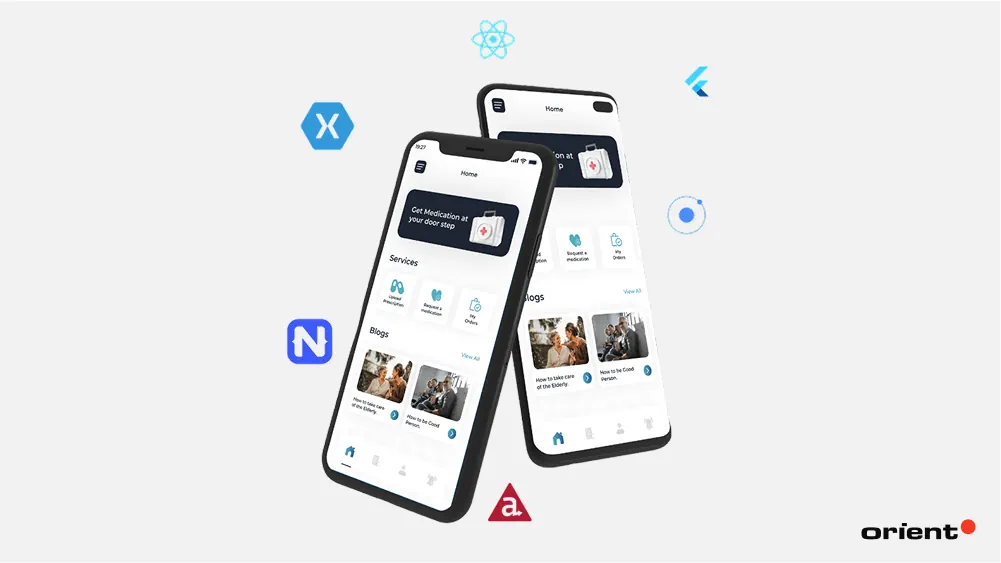
Unlike hybrid solutions, cross-platform apps render using native UI components, which explains why they look and feel like true native applications. They also tend to perform better than hybrid apps since they do not rely on a web view for rendering. Cross-platform development is the best approach for companies and enterprises seeking to reduce development costs and accelerate time-to-market.
Three Levels of Enterprise Mobile Apps
Every organization has its own business model and operational processes, so the needs vary completely, case by case. Enterprise apps are divided into three different levels that reflect the distinct complexity and scenarios of each organization.
Employee Level
The first and the narrowest tier is employee-level applications. As its name implies, these are role-specific apps created to support staff with one particular matter and empower individual productivity.

Usually, such apps focus on one of the three key characteristics:
- Task Management & Automation: Task-oriented apps are provided to automate routine tasks, save effort, and reduce manual errors.
- Skill Development: These are platforms used for on-demand learning, where learners (employees within a team or the whole organization) can access and complete courses via mobile devices. For example, Coursera, Udemy, or any learning management systems.
- Communication & Collaboration Optimization: These apps are implemented into the workflow to eliminate the need for fragmented email chains or in-person meetings and streamline internal communication processes between individuals. Some are created to enable mobile access to personalized info (E.g., pay slips, timesheets, leave requests, etc.).
Department Level
Similar to the first tier, the second level of enterprise apps aims to streamline daily workflows and enhance the productivity of a specific business unit (such as finance, sales, marketing, HR, or customer services) rather than for individual users. In addition to automating processes and improving performance, departmental mobile applications serve as a unified platform for intra-departmental collaboration (within one team) and inter-departmental collaboration (across multiple teams).

Let’s take an example. A marketing team and a sales team can collaborate effectively through a customer relationship management (CRM) platform - a shared, centralized database of customer interactions and information. This unified flow enables the sales team to access valuable insights while the other designs targeted marketing campaigns based on critical data.
The standard features commonly included in such apps are data integration and management, cloud storage, workflow automation, real-time dashboards and reporting, project management, etc. Ultimately, it depends on the needs and priorities of a specific organization to decide which features to build.
Management Level
This is a tier for business leaders. At the employer level, the mobile applications are designed to connect all departments, centralize information, and offer comprehensive oversight, control, and decision-support capabilities across departments and operations. These management-level applications are built differently for each organization but are aligned with one common goal: To streamline operational management activities and automate as much manual administrative work as possible.
Enterprise mobile app developers often incorporate advanced technologies, such as artificial intelligence (AI), machine learning, business intelligence (BI), predictive analytics, etc., to enrich their systems’ capabilities. These advancements enable smarter automation, deeper data insights, and more personalized user experiences.

Enterprise management at the highest level involves a complex ecosystem composed of multiple interconnected systems (including mobile apps). Each serves a distinct purpose, ranging from finance and human resources to sales, logistics, and customer service. And they are not isolated tools but integral components of a broader operational strategy.
Above all, the level of an enterprise mobile application and its intended scope play a critical role in shaping its functionality, integration needs, and impact on the organization. Whether built for individual employees, departments, or the entire company, each mobile app contributes to the seamless flow of information, task automation, and overall business agility within the enterprise.
Approaches to Enterprise Application Development
Business leaders can take different paths toward the enterprise mobile development goal. Each approach possibly brings advantages and trade-offs. Your decision should be made based on key considerations, namely budget, customization level, time constraints, and internal expertise.
Off-the-shelf Corporate Systems
The easiest and fastest way to implement an enterprise mobile solution is to purchase a ready-made solution. These mobile apps are pre-designed for common business use and pre-built to deploy faster with minimum setup.

However, the very advantage of off-the-shelf solutions becomes a limitation. Basic customization is usually available, but deeper tailoring to match a company’s unique processes and needs is often restricted or costly. Additionally, pre-built apps may not integrate well with one organization’s existing systems.
Even though opting for off-the-shelf mobile solutions does save upfront costs, ongoing subscription and license fees accumulating over time are what you should worry about. Still, off-the-shelf enterprise apps are a practical choice for many businesses that do not require extensive customization and lack internal expertise.
In-house Enterprise App Development
For those who require exclusive, advanced features or have unique expectations, it’s better to build their mobile applications from scratch with their own teams. This approach puts you in total control and allows you to build and customize your enterprise platform to specifically fit your organizational demands.

On the flip side, in-house development requires significant investments in skilled developers, tools, and infrastructure, not to mention multiple challenges and burdens, such as ongoing training, team management, process oversight, and long-term maintenance responsibilities.
Internal mobile app development will be ideal when an enterprise has its own strong technical team, a long-term vision, and the need for complete control over the app’s functionality, architecture, and security.
Outsourcing
If neither in-house development nor off-the-shelf solutions meet your needs, outsourcing mobile app development can be a smart, strategic alternative. You can collaborate with an external vendor, software development agency, or an offshore team. On your behalf, the partner will take over the entire development process and handle everything from planning to deployment and even post-launch maintenance. Responsibilities, timelines, and deliverables are typically defined in a formal agreement between both parties.

Outsourcing is especially suitable for companies that lack in-house technical capacity or aim to move quickly, access specialized expertise, and control costs without expanding their internal development teams or growing new ones.
While some business leaders still view outsourcing as a last resort, many now recognize it as a practical and scalable solution, particularly when building enterprise-grade systems that require a high level of complexity and customization. In these cases, outsourcing enterprise app development can be a valuable decision.
Orient Software - Your Reliable Partner for Enterprise Mobile App Development
Is your enterprise preparing for a major digital leap? But you are in need of professional support. Orient Software is here to help.
Who are we? We are the trusted partner of more than 100 global clients, including many large companies. With over 200 successful projects across scales and industries, Orient Software brings both breadth and depth to enterprise mobile app development and custom software development.

Our dedicated team of experts excels in building high-performance, scalable mobile applications tailored to complex enterprise environments. Backed by our real-world business insights, deep technical knowledge, and time-tested processes, we are committed to delivering solutions that impact.
Entrust your project to us. We handle the technical part while you focus on your core business. Drop us a message and tell us what you need. Our consultants will get back to you within three business days for a detailed, no-obligation discussion.


